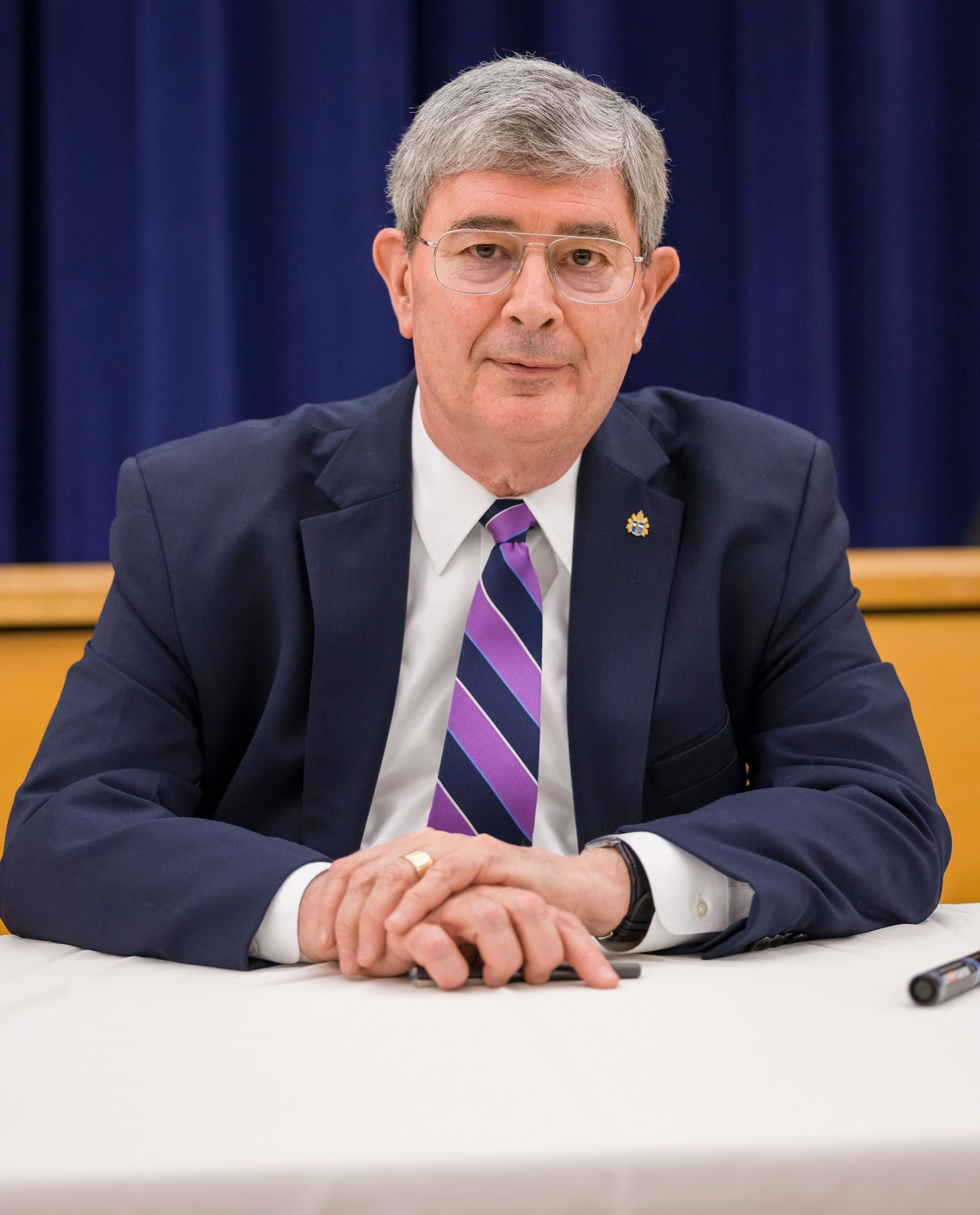Within twenty-four hours last month, three mainstream Catholic websites ran stories describing Pope Francis’s meeting with the members and consultors of the Dicastery for the Doctrine of the Faith, with the following headlines:
“Pope Francis defends blessings of couples in ‘irregular situations,’ including same-sex unions” (America Media, January 26);
“Pope defends document offering blessings for ‘irregular’ couples” (La Croix International, January 27);
“Amid furor over Vatican doc, Pope says aim is to bless people, not same-sex unions” (Crux, January 27).
There is legitimate theological diversity in the Catholic Church. (Thomists and ressourcement theologians both contributed to the teaching of the Second Vatican Council.) There are legitimate differences of theological method in advancing a dynamic orthodoxy. (See the works of Fr. Thomas Joseph White, O.P., and Fr. Robert Imbelli.) There are even legitimately different ways of expressing enduring truths of the Catholic faith. (Compare the style of the first and third chapters of John Paul II’s 1993 encyclical, Veritatis Splendor, with that of the second chapter.)
Then there are Tohu wa-bohu (Jer. 4:23, citing Gen. 1:2): a Hebrew phrase that can be rendered as “chaos and confusion.”
What we have emanating from Rome today is Tohu wa-bohu.
Chaos and confusion, of the sort suggested by those three headlines, disturb the peace and unity of the Church, especially among its most devout people. Chaos and confusion are impediments to vocation recruitment: Many are willing to take up the burdens and challenges of priestly or consecrated life for the sake of a mystery of divine love; few are going to give their lives for a question mark (and those who do are almost certainly heading for trouble). Chaos and confusion are grave impediments to evangelization: Who wants to join the Church of Maybe, which is just the Church of the Zeitgeist, the Spirit of the Age tarted up with smells and bells?
And Tohu wa-bohu—chaos and confusion—are precisely what the Office of Peter in the Church was created to mitigate.
Christ promised that, through the work of the Holy Spirit, the Church would be preserved in the truth (John 14:16–17). Having promised that, Christ established the Petrine Office—what we know as the papacy—to give specific, historical form to that promise. Thus the job description of the pope, the Bishop of Rome, is encapsulated in Luke 22:32, when the Lord Jesus, at the Last Supper, commanded Peter to “strengthen your brethren.”
Strengthening the brethren does not mean confusing them. Nor does it mean permitting to go uncorrected the confusions propounded by others with authority in the Church. The diversity-within-unity that the Petrine Office is also called to protect is not a diversity of opinion in settled matters of Catholic faith, be those matters doctrinal or moral. Diversity-within-unity is not Tohu wa-bohu.
The twenty-first-century world is full of chaos and confusion, much of it lethal. The world does not need more chaos and confusion from the Catholic Church; if the world wants Tohu wa-bohu with a religious veneer, there is a rich menu of options from which to choose. Whether it wants it or not, what the world needs from the Catholic Church is a compelling, creative, accessible, and compassionate proclamation of the truths of the gospel—and the truths of the moral life that embracing Christ and his cause help us grasp, even as we also grasp them by reason (another commodity in short supply in 2024).
The third chapter of my small book The Next Pope: The Office of Peter and a Church in Mission begins with what might seem a statement of the obvious: “The next pope must have a firm grasp on the nature of the Petrine Office and its roles in the Church of the New Evangelization.” But restatements of the obvious seem necessary in the Year of Our Lord 2024.
Truth to tell, I was heartened when, at World Youth Day 2013, Pope Francis used some Argentinian slang in urging young people to “make a mess”—which I interpreted as a call to courage and creativity in advancing the New Evangelization: Be bold. Don’t be afraid to try something new in offering others friendship with Jesus Christ. Whether that was too benign an interpretation, I leave others to judge.
What is certain is that making a mess is not the remit of the man who holds the Petrine Office in the Church. There will be a measure of Tohu wa-bohu in the Church until the Lord returns in glory. One task of the Petrine Office is to keep the inevitable chaos and confusion to a minimum. It is not to exacerbate it. And it certainly isn’t to encourage it.
George Weigel’s column “The Catholic Difference” is syndicated by the Denver Catholic, the official publication of the Archdiocese of Denver.

George Weigel is Distinguished Senior Fellow of Washington, D.C.’s Ethics and Public Policy Center, where he holds the William E. Simon Chair in Catholic Studies.
First Things depends on its subscribers and supporters. Join the conversation and make a contribution today.
Click here to make a donation.
Click here to subscribe to First Things.
Image by Rabax63 licensed via Creative Commons. Image cropped.
You have a decision to make: double or nothing.
For this week only, a generous supporter has offered to fully match all new and increased donations to First Things up to $60,000.
In other words, your gift of $50 unlocks $100 for First Things, your gift of $100 unlocks $200, and so on, up to a total of $120,000. But if you don’t give, nothing.
So what will it be, dear reader: double, or nothing?
Make your year-end gift go twice as far for First Things by giving now.


